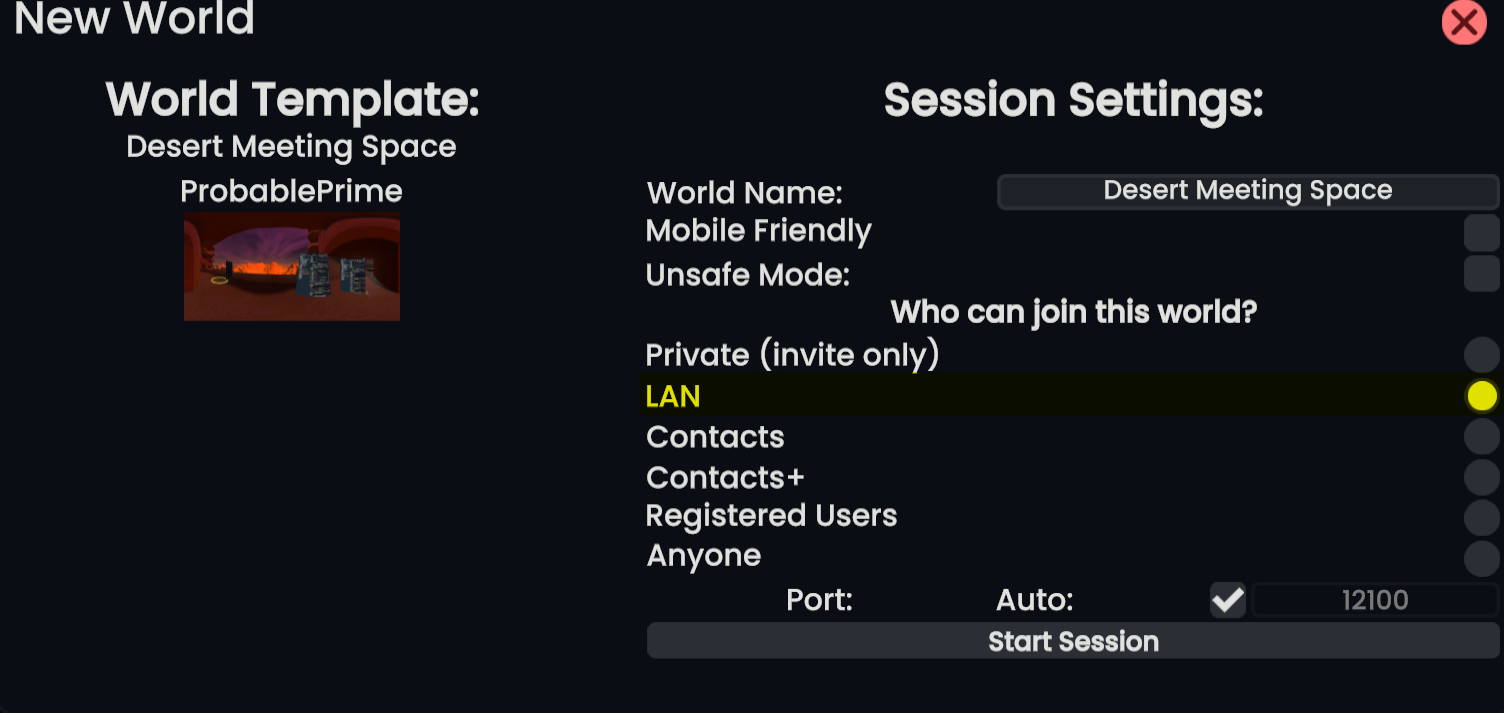No edit summary |
No edit summary |
||
| Line 23: | Line 23: | ||
ClientC[<translate>Client A</translate>] | ClientC[<translate>Client A</translate>] | ||
Host[<translate>Host</translate>] | Host[<translate>Host</translate>] | ||
ClientA-|<translate>Network Cable</translate>| | ClientA-->|<translate>Network Cable</translate>|Router | ||
ClientB-|<translate>Network Cable</translate>| | ClientB-->|<translate>Network Cable</translate>|Router | ||
ClientC-|<translate>Network Cable</translate>| | ClientC-->|<translate>Network Cable</translate>|Router | ||
Host-|<translate>Network Cable</translate>| | Host-->|<translate>Network Cable</translate>|Router | ||
}} | }} | ||
Revision as of 00:57, 1 June 2024
It is possible to run Resonite sessions over a Local Area Network(LAN). This guide will tell you how to do this and also provide some tips and ideal scenarios where you might want to do this.
Suitable Scenarios
Running a LAN session is suitable for a number of scenarios:
- Conferences & Conventions
- Educational uses
- Research
Session Setup
To run a Resonite Session as a LAN only session, simply select this option when creating a session in the "Access Level" option.
When a session is created with this option selected it will only be accessible to users in the same LAN as the Session Host.
Network Setup
A simplified example LAN network setup is shown below.
